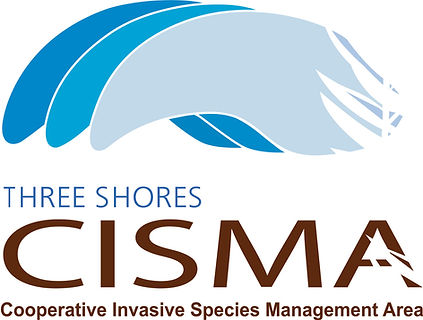Michael Hindy – Three Shores CISMA Coordinator
As the snow melts away, it’s time to put away our snowmobiles as we get ready for another favorite Yooper pastime: hitting the trails with our Off-Road Vehicles (ORV) and All Terrain Vehicles (ATV). Did you know that while hitting the trails, you could accidentally be spreading invasive species? Invasive species are plants, animals, and other organisms that invade ecosystems and dominates them by impairing vital functions, structures, creates human health concerns, and limits recreation opportunities. Once an invasive species becomes established in the wild, it can take years of persistent management before its infestation is eradicated.
As ORVs and ATVs become more popular in Michigan’s Upper Peninsula, so does the risk of the spread of invasive species. As the season’s change, invasive species spread their seeds into the mud and soil. As ORVs and ATVs ride along the trail, the mud that attaches to the vehicle can contain the invasive species seeds and carry them to a new habitat. While a muddy ORV may be a badge of honor for a rider, it’s really troublesome when the mud gets brought home or to a new trail, as it could be hiding seeds from invasive species such as wild parsnip (causes painful rashes), garlic mustard (eliminates grouse and deer habitat), and others.
To prevent the spread of invasive species on our trails, all you need is 5 minutes and a compressed air, leaf blower, or pressure washer. First, visually inspect your vehicle before taking it out onto the trails, paying close attention to the tires, wheel arches, engine housing, and undercarriage. Do you notice any mud or plant matter? If so, remove any seeds, plant material, and mud before heading out onto the trails using a compressed air gun, leaf blower, or pressure washer. If mud is “caked on” or dried, a pressure washer or broom sometimes works best. If you don’t have a source of compressed air, leaf blower, or pressure washer, take your ORV, ATV, and other equipment to a self-serve car wash to clean off the mud. If you’re hauling your ATVs in a vehicle and trailer, take a few extra minutes to check for mud and plant material on your trailer, tires, wheel arches, vehicle chassis, cabin floor, and engine bay, following the same cleaning procedures as your ATV. Make sure to repeat these steps each time before heading back out on the trails. Together we can prevent the spread of invasive species on our trails and keep them a thrillful wonder for all to enjoy!
If you have any questions or want to learn more about invasive species, contact the Three Shores CISMA today through our website (www.threeshorescisma.org), Facebook or Instagram accounts, email us at threeshorescisma@gmail.com, or call us at 906-630-7139. Hope to see you out on the trails!
- Keeping The Piece Quilters Guild to hold annual show in September - July 2, 2023
- District Court Report: April 20, 2023 - April 21, 2023
- Early Invaders of the Eastern Upper Peninsula - April 18, 2023



